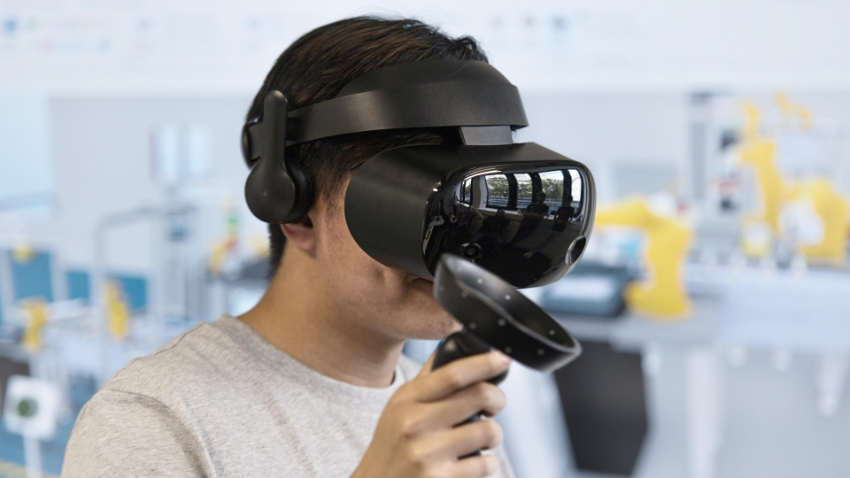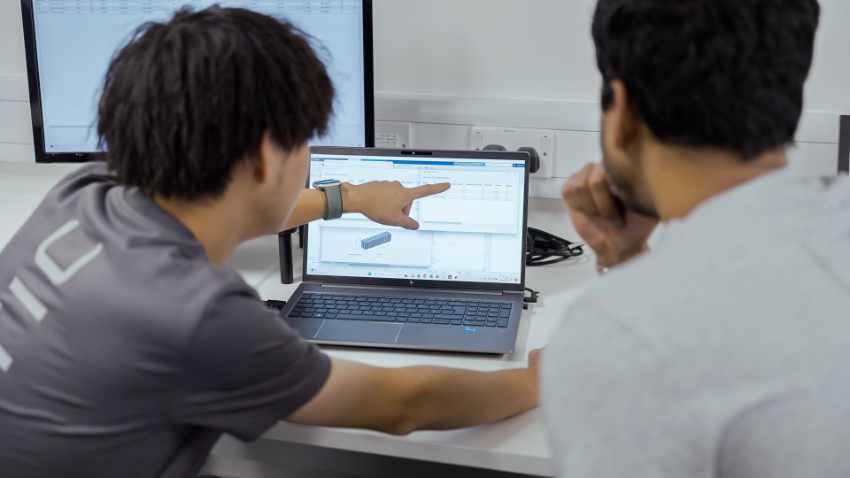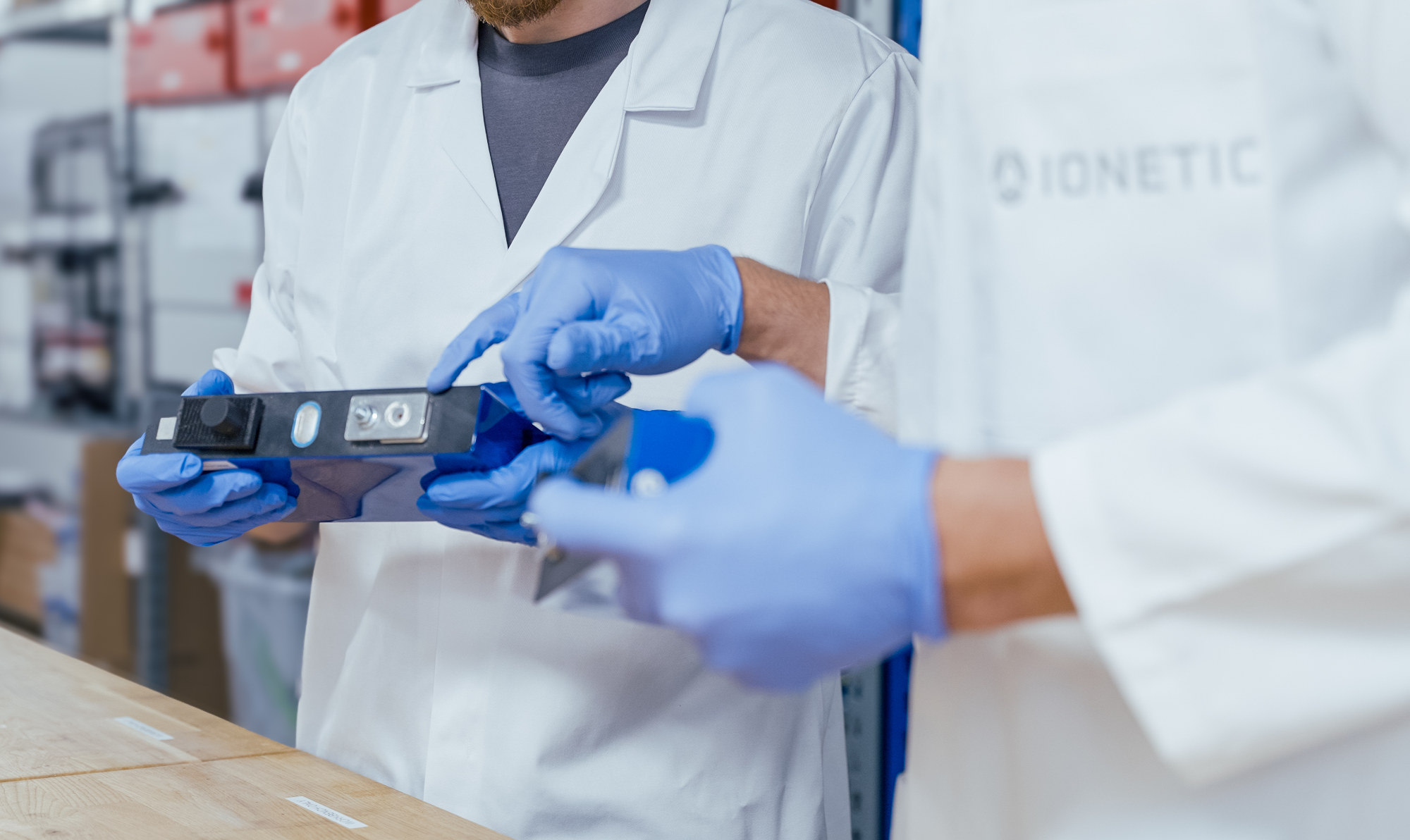IONETIC is a UK-based EV battery pack technology scale-up that’s revolutionising how battery packs are developed and manufactured for the automotive industry. Founded in 2022, the company combines advanced software tools with smart manufacturing systems to deliver high-quality, cost-effective battery solutions to automakers and other industries. Their latest breakthrough is Arc, a world-first software-accelerated, AI-supported system that dramatically reduces both the time and costs associated with developing fully customised EV battery packs.
Interview with James Eaton, CEO of IONETIC.
What are the main areas of activity of the company?
James Eaton: Our primary focus is on providing end-to-end battery pack solutions for niche vehicle-makers and automotive OEMs, managing everything from initial conceptualisation through to final production. We’ve developed proprietary software that can generate customised battery pack concepts in minutes, analysing all relevant parameters to optimise solutions for each customer’s specific needs. We then take that concept, validate and test it with your vehicle or product, and put it into production in our unique battery facility coming soon.
Do you have any updates on new products/services?
J.E: We’ve just unveiled our groundbreaking Arc system, which represents a significant leap forward in the way battery packs are developed. Traditional, ground-up battery pack development programmes can often take over 4 years and cost over $30m. With Arc, we’ve created a software-accelerated, AI-supported development system which enables us to do this in half the time, and at a fraction of the cost. Arc integrates three key elements: AI-accelerated design tools, pre-validated hardware systems, and an innovative flexible manufacturing approach that’s more akin to semiconductor fabrication than traditional automotive tier 1 manufacturing.

What are the ranges of products/services?
J.E: Our mission is to make electrification possible and compelling for every vehicle OEM on the planet. We do this by developing and supplying full battery systems with a focus specifically on those OEMs requiring between 100 and 10,000 battery packs annually. Our Arc system allows us to provide truly customised solutions but at the cost-efficiency of mass production, making it ideal for trucks, buses, sportscars, and other specialised vehicles. We handle everything from design and prototyping through to homologation and production, all managed in-house.
What is the current, and future state of the market where you are currently active?
J.E: There’s no question that electrification is the future – we’re seeing tremendous momentum and commitment from across the industry. But let’s be honest about where we are: several OEMs are experiencing delays with their EV programs, and we’ve seen some high-profile battery suppliers facing real challenges recently. It’s a wake-up call that we need to rethink how we approach electrification.
While everyone focuses on the big automotive players, we’ve identified that 95% of OEMs are actually working on lower-volume specialised vehicles – think trucks, buses, and performance cars. These companies are stuck between a rock and a hard place: they can either spend a fortune and wait years for a fully custom battery pack, or compromise with an off-the-shelf solution that doesn’t quite meet their needs.

This is exactly where we’re making a difference. We’re offering the ‘goldilocks solution’ – combining the performance advantages of custom design with the speed and cost benefits of standardised components. It’s about being smart with both software and manufacturing, giving these OEMs a way to bring competitive electric vehicles to market without the traditional headaches of cost overruns and lengthy development cycles.
The EV battery sector is set to grow 15-30% annually for the next 10 years and so there is a huge opportunity for an agile scale up like us. The market is evolving, and while the enthusiasm for EVs remains strong, there’s a growing recognition that we need more pragmatic, efficient approaches to electrification. That’s the gap we’re filling.
What estimations do you have for the year ahead?
J.E: It’s an exciting time for IONETIC, and we expect to announce several new partnerships in the next 12 months with OEMs who are looking to bypass the traditional $30m investment and four-year timeline typically required for bespoke EV battery systems.
Over the next year we will continue to work with Alexander Dennis – one of the world’s largest manufacturer of double-deck and lightweight buses – to develop a next generation battery pack. Designed to address the current leading challenges faced by bus manufacturers, our system aims to deliver longer operational lifetime, whilst still meeting the competitive range and price point required for operators.
We’re also seeing real interest from manufacturers of specialised vehicles like emergency response vehicles, taxis, HGVs, and sports cars. The nice thing about our approach to battery pack design and fabrication, is that it allows us to serve multiple different customers simultaneously without having to infinitely scale headcount and facilities.

How do you see the long-term future of your industry?
J.E: When I think about where this industry is heading, it’s clear that zero-emission vehicles aren’t just a trend – they’re the future across every automotive segment. But here’s the thing: for this transition to really work, we can’t just focus on the big players churning out millions of cars. We need to make electrification work for everyone, including smaller manufacturers who are often pushing the boundaries in specialised vehicles.
What really excites me is that we’re helping democratise this transition. There’s something powerful about enabling OEMs of all sizes to go electric in a way that actually makes business sense for them. I genuinely believe we’re at the beginning of a complete transformation in how vehicles are powered, and we’re committed to being at the forefront of making battery pack development smarter and more efficient. The opportunity here is massive, and we’re just getting started.


